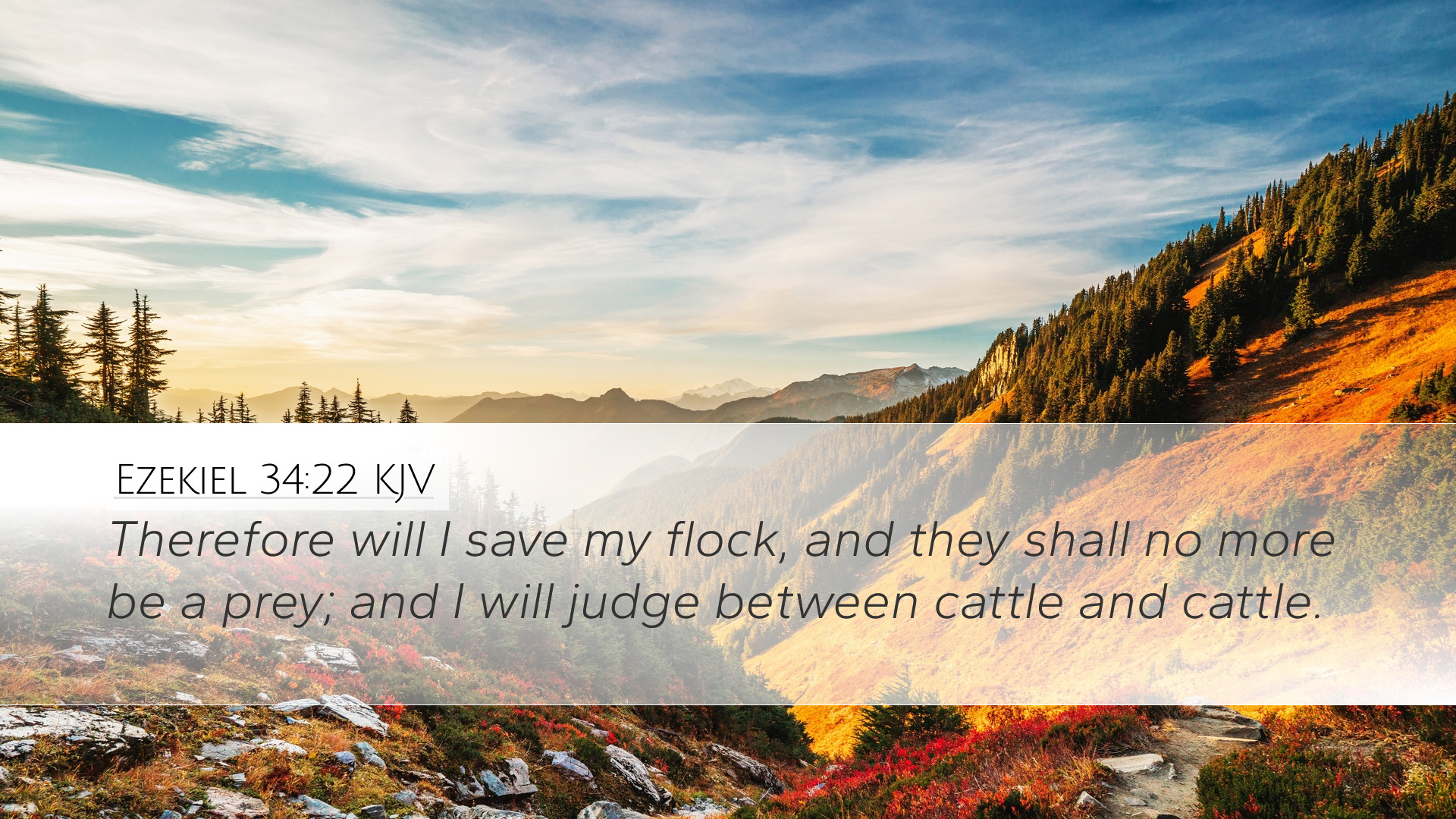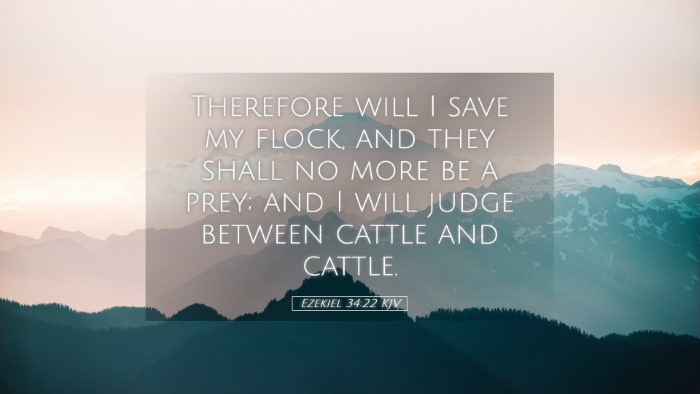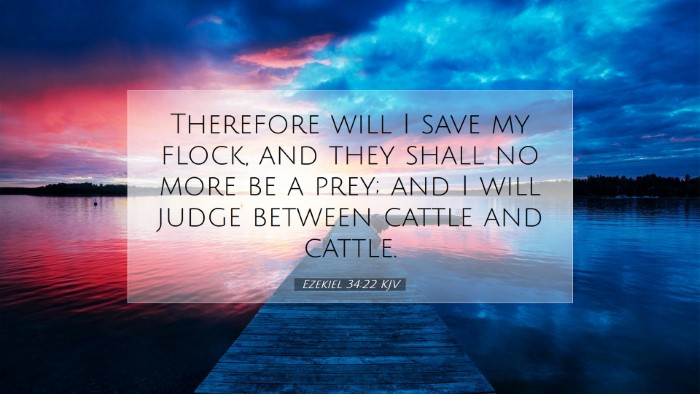Ezekiel 34:22 Commentary
Bible Verse: Ezekiel 34:22 - "Therefore will I save my flock, and they shall no more be a prey; and I will judge between cattle and cattle."
Introduction
This verse from Ezekiel is pivotal within the context of the prophecy wherein God, through the prophet Ezekiel, expresses His intention to intervene on behalf of His people. The image of God as a shepherd is central to this chapter, where He contrasts Himself with the negligent leaders (or shepherds) of Israel. The promise of salvation and protection is a key theme that resonates throughout the Scriptures.
Exegesis of Ezekiel 34:22
Matthew Henry's Commentary expounds on the shepherd metaphor extensively, observing that God takes it upon Himself to rescue His flock from danger and oppression. The passage highlights God’s commitment to save His people from their current state of vulnerability.
Henry asserts that the "flock" represents not only the people of Israel but also the faithful remnant that God preserves. The imagery of cattle signifies the various members of the community, and God promises to "judge between cattle and cattle," indicating His role as a righteous judge who differentiates between those who are faithful and those who cause harm.
Theological Implications
- Divine Protection: This verse assures believers of God’s intention to safeguard His people. In the context of modern pastoral care, this encourages church leaders to emulate the Shepherd’s protective nature.
- Righteous Judgment: God’s promise to judge indicates His authority and His engagement with issues of justice. Theological reflection on this can lead to a greater understanding of God's sovereignty over the affairs of His people.
- Restoration of Community: The promise of salvation reinstates hope for a community that has experienced fragmentation. For theologians, this raises the importance of community in the life of the believer.
Insights from Albert Barnes
Albert Barnes emphasizes the eschatological dimensions of this passage. He interprets God's promise to save His flock as a foreshadowing of the coming restoration that would be fully realized in the New Covenant through Christ. This anticipation of future hope is essential for understanding the suffering and challenges that believers face in the present.
Barnes also notes that the phrase "they shall no more be a prey" reflects a significant shift in the spiritual and social dynamics of the community. Israel’s history is marked by oppression and violence; thus, this promise signifies both physical and spiritual deliverance.
Practical Applications for Today’s Church
- Leadership Accountability: Church leaders are reminded of their calling to provide genuine care and protection for their congregations. This calls for self-examination and accountability in spiritual oversight.
- Hope in Despair: In times of crisis, reflecting on God’s promise can lead to renewed hope for individuals and congregations alike. Pastoral teachings should focus on God’s unwavering commitment to His people.
- Community Justice: This passage challenges the church to engage in issues of justice and mercy, echoing God’s heart for the vulnerable and marginalized.
Perspectives from Adam Clarke
Adam Clarke brings forth a nuanced view, examining the societal implications of God's judgment and salvation. He interprets the "judging between cattle and cattle" as a restoration of order within the community, challenging individuals and leaders alike to align with God's justice.
Clarke highlights the importance of sound doctrine and discipline within the community of faith, suggesting that part of God’s saving work includes correcting those who lead others astray. His commentary pushes the reader to recognize the balance between mercy and judgment in God's character.
Conclusion
In Ezekiel 34:22, we find a profound declaration of God’s protective presence and righteous judgment. The insights from Matthew Henry, Albert Barnes, and Adam Clarke collectively remind us of the enduring truth of God's promise to save His people, challenge leaders to uphold justice, and inspire hope for the community of faith. As pastors, theologians, and students of the Word delve into this passage, may they find renewed understanding of God's shepherding role and the implications for leadership and community life today.


